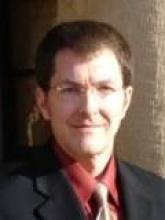John and Ken begin the show by discussing the idea that one can live his or her life as a work of art. John is not convinced by the metaphor, arguing that although he can see writing of his life in a book, he has little control over the events of his lived experience—he can’t decide on just any shaping and just go about it. Ken rebuts that we have a surprising amount of power, adding that our values can shape and guide our choices. And John replies that living a life by such aesthetic values may not even lead to wise decisions. Living artistically, he says, might even lead to living immorally, for the sake of the excitement such a life produces. Ken argues that this is more about being self-reflective than self-absorbed. John remains unconvinced.
The two are joined by Lanier Anderson, Nietzsche scholar and Professor of Philosophy at Stanford University. Anderson first read Nietzsche as a freshman in college and was captivated by the idea of artistic refashioning. The idea, he says, is to mobilize the value of art in our everyday lives. Our capacity for detachment and deliberate self-management allows us to be active players in our own lives.
Responding to Ken’s inquiry about how to balance happiness and aesthetic and moral values, Anderson replies that the aesthetic and moral perspective offer us a view from narrow domains, influencing how we shape our lives but not dominating them. Much like the Greek conception, then, Anderson sees happiness as an overall well being where all of one’s values are in harmony with each other. The conversation then turns to eternal recurrence: what it is and how does it work? Anderson explains the thought experiment as something that helps guide our lives, a consistency test of sorts. John questions the validity of the experiment, asking why, if you wanted to change something, it would mean that you had lived a bad life. Ken and Anderson explain that this sameness requirement is there to force you to think about your life as a whole, good parts and bad.
In the final segment of the show, among other topics, the three turn to looking at art itself, and how our engagement with the arts might play into living a meaningful life. Anderson and Ken both speak to the important role of art in allowing us to craft our lives in the first place. Both agree that this value has largely been lost in American culture and education. John concludes the show on a note of agreement, conceding that for certain lives and situations, the idea of life as a work of art is certainly powerful and inspiring.
- Roving Reporter (seek to 5:47): Caitlin Esch speaks with musicians Janiva Magness and Craig Chaquico about how they have integrated their lives into their art and their art into their lives. For both, impactful and difficult childhood experiences have shaped their music, and it is into their music that they have deposited their emotions. It is in this way, Esch finds, that their music is also in their lives, helping to integrate their painful experiences in meaningful ways.
